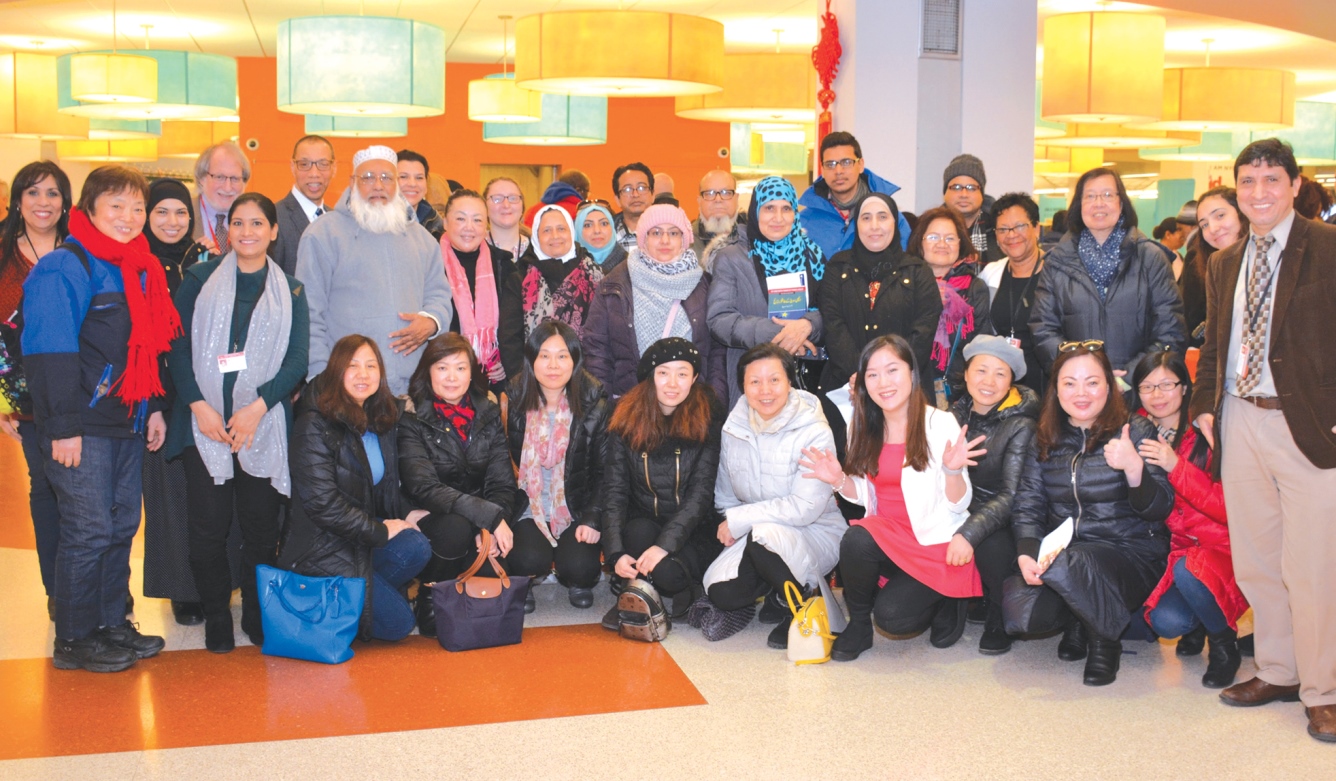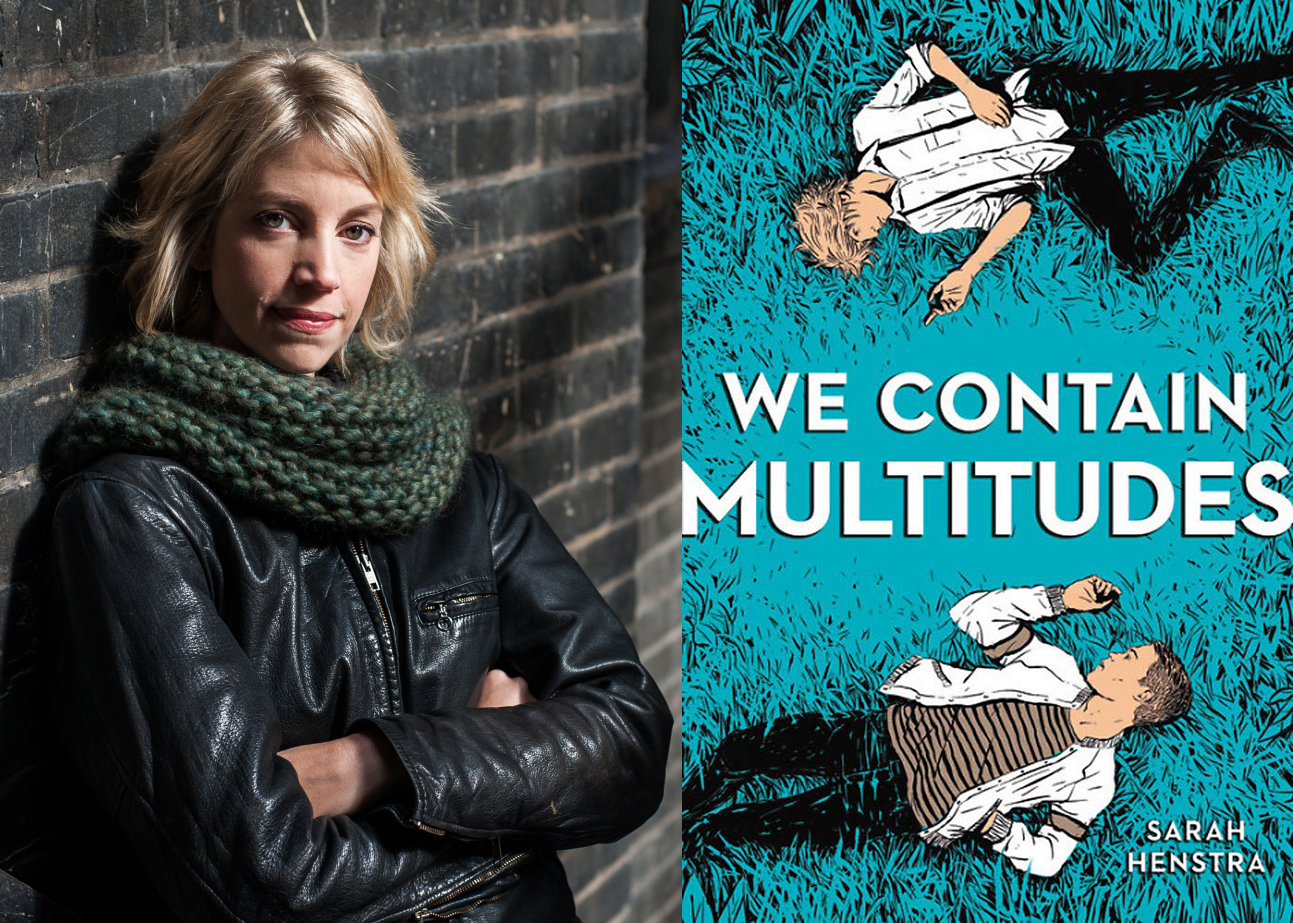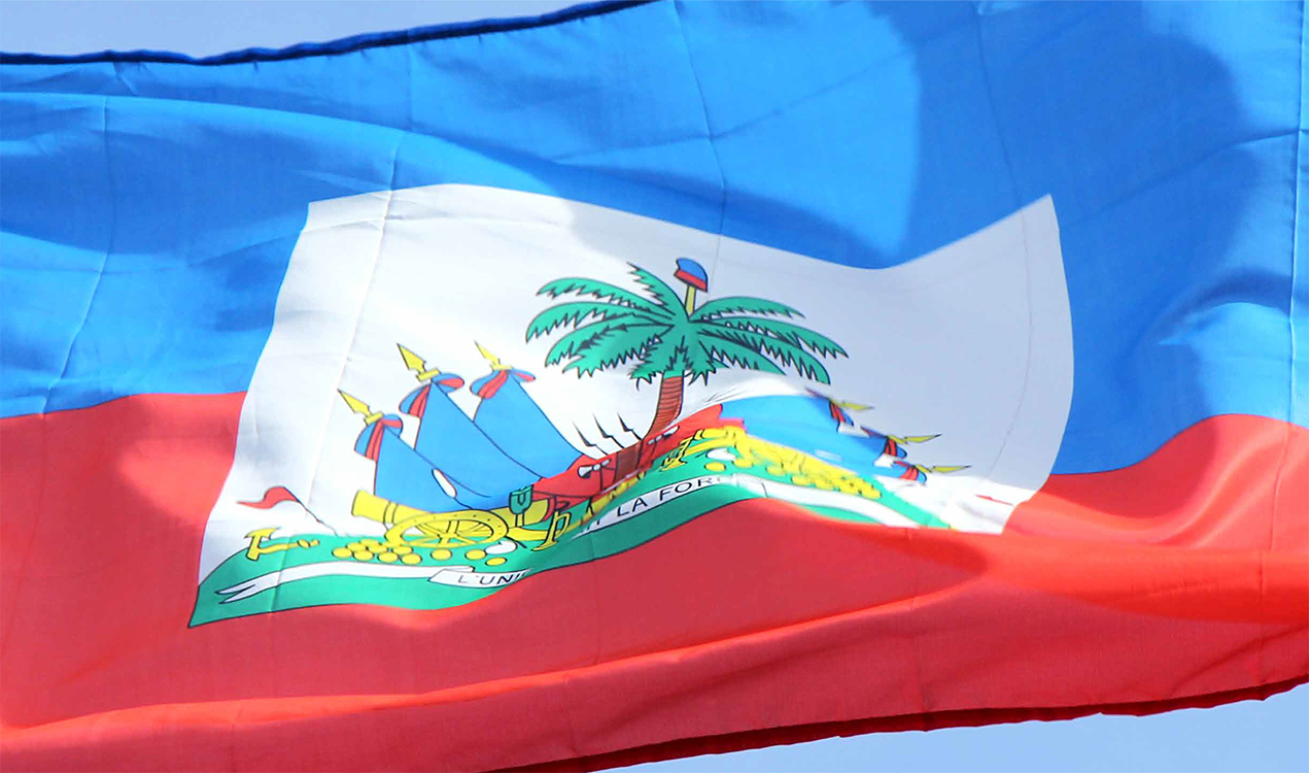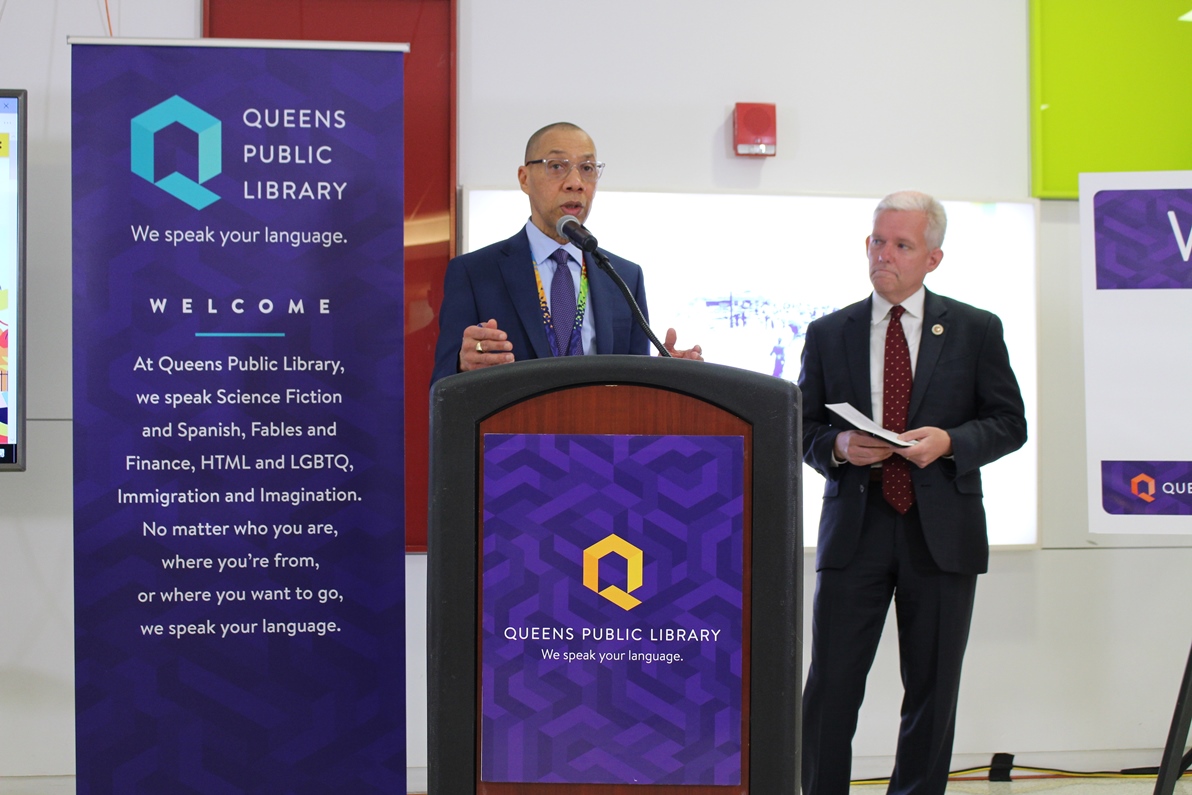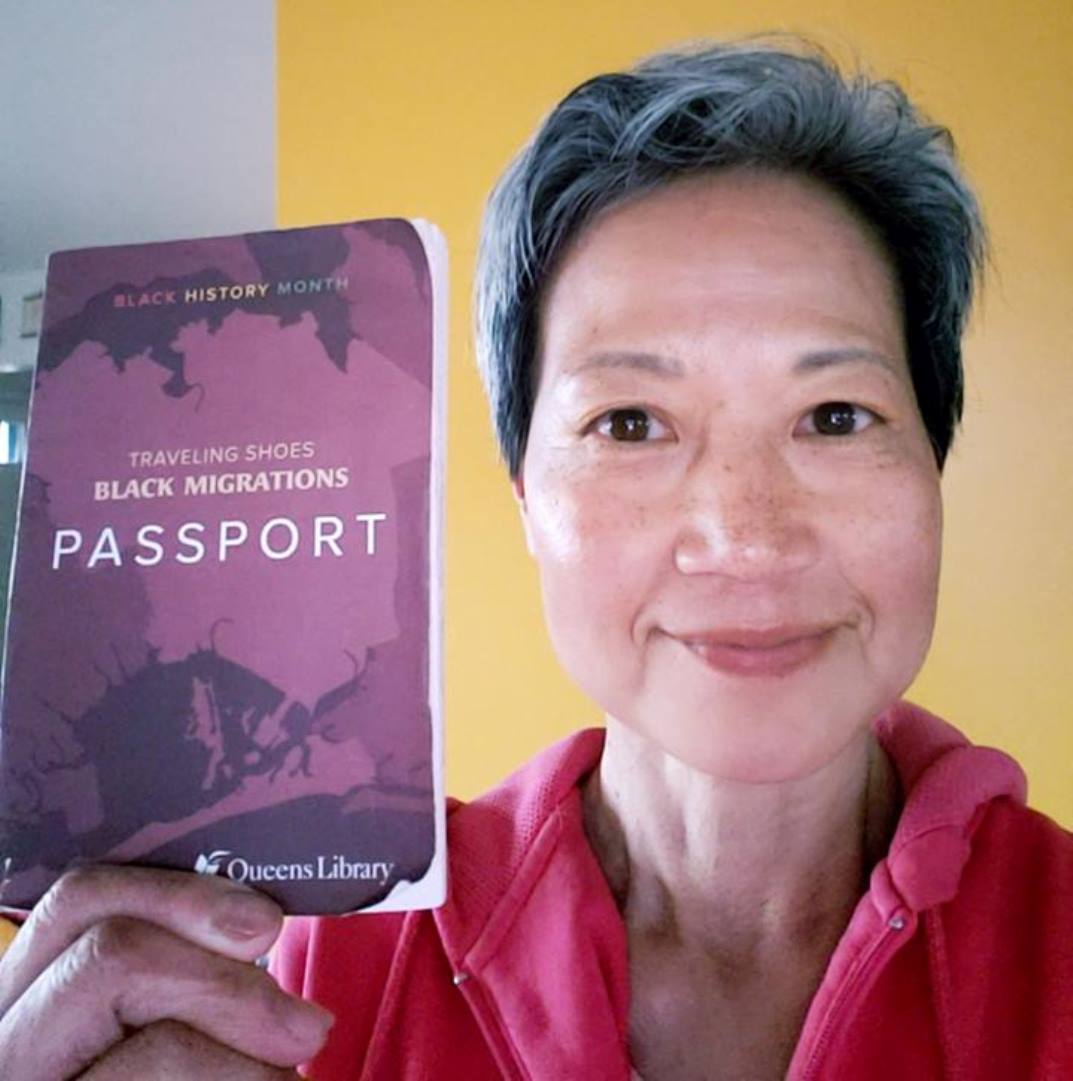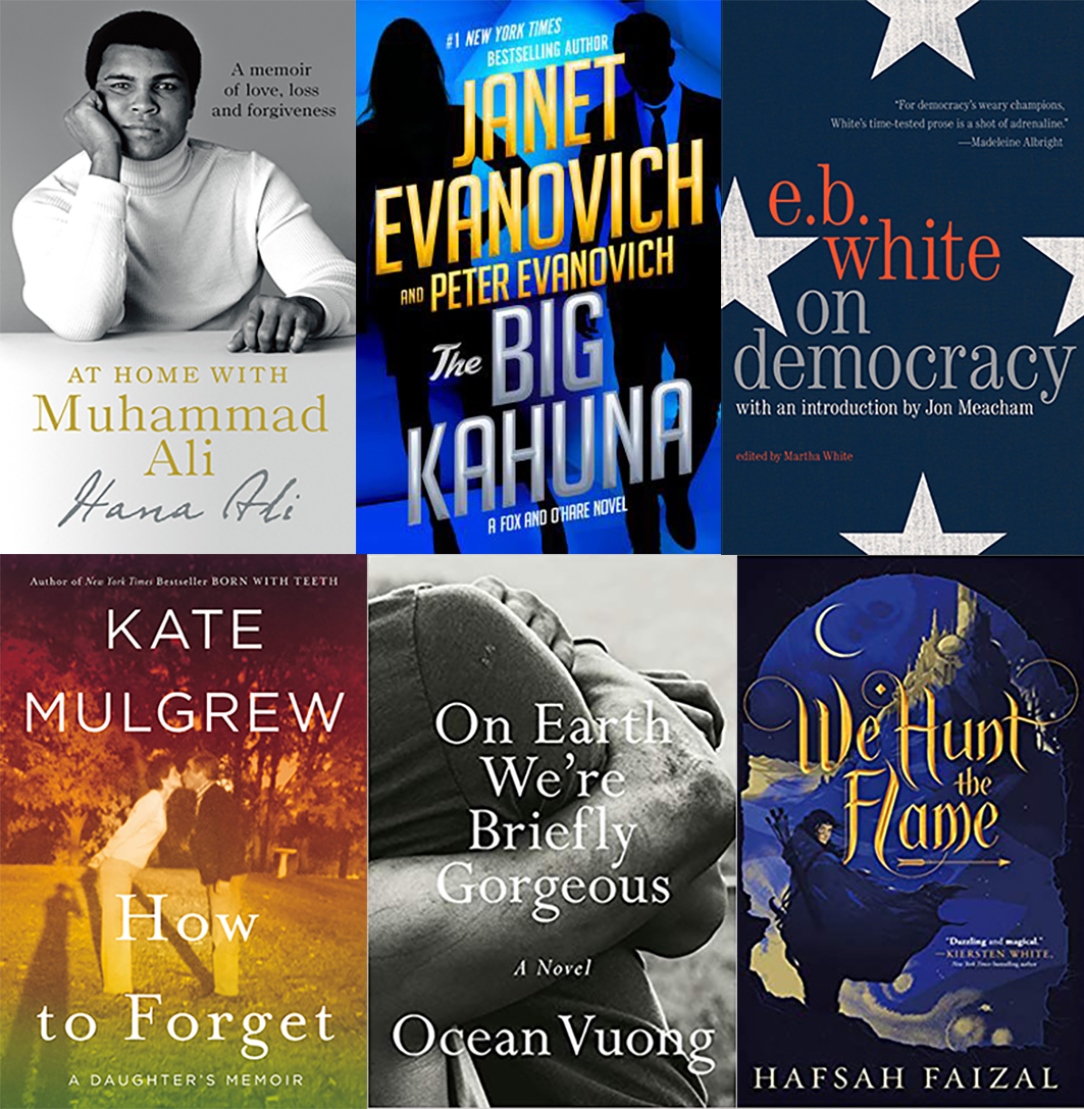June is Immigrant Heritage Month, and at Queens Public Library locations across the borough, we’re holding special events celebrating our diverse cultures and encouraging you to Bring Your Story to share with others and us at the Library!
We are starting our special events early, first on Monday May 20 at 5:30pm at Langston Hughes Community Library with a celebration of Mexican culture with Mariachi Tapatío de Álvaro Paulino, one of the finest mariachi bands in New York City. The band's music includes corridos, a form of storytelling in song that is enjoyed by young and old. Then, on Tuesday, May 28 at 3pm at Woodhaven Library, Mexican-born artist Aurelia Fernandez will discuss ancient traditions surrounding the Day of the Dead altar and teach our guests how to make calaveras, clay versions of the elaborately decorated sugar skulls used in Mexico.
In June, at each of our branches, we will have a special map for our customers to trace their family’s journey to the United States. Using special string, our Map Your Story activity will show the cultural ties that connect the U.S. to the rest of the world!
What is your family’s most beloved recipe? Who was the first to make it? What are its roots? You can write down a family recipe and bring it to us at our Stories Around Food events, and one recipe representing each of our locations will be chosen for a Queens Public Library cookbook!
Who was the first person in your family to immigrate to the United States? Where did they come from? Whether you are a recent immigrant or your family has been in America for generations, our Family Heritage Project for teens will provide a better understanding of your heritage for all of us to share.
We also invite you to listen and share with us in a three-part event series starting June 6 to celebrate the launch of the first season of the Queens Memory Podcast, Memories of Migration. The podcast draws from oral history recordings with Queens residents. At each event, we will listen to a full episode from the season, followed by a talk-back session with a featured storyteller from the episode.
Let your imagination run free as you Create Your Family Flag! Combine colors and shapes that come from the flags of your family’s country or countries of origin, or use colors and pictures that are meaningful to your family, and make a unique family flag that celebrates your heritage.
Do you have a traditional costume from your ancestral country? Come and show it off at select locations in a Stories Around Clothes multicultural mini-fashion show.
These are just some of the great activities we have planned for Immigrant Heritage Month; to see our full schedule, visit our homepage this June!
Sarah Henstra grew up visiting her library every Saturday morning with her siblings and her mother, who was an elementary school teacher. “My love for reading combined with a competitive streak, so that I often borrowed more than I could physically cart home by myself,” she says. As a writer, she keeps lists of questions as she writes. When she has met her word count, she rewards herself with a visit to a reference library, sometimes staying there all day.
Henstra’s new Young Adult novel We Contain Multitudes describes the relationship that develops between two teenage boys who are assigned to be pen pals. “I wanted to experiment with the limitations and possibilities of old-fashioned letterwriting in a contemporary teenage world,” she explains. The book’s title comes from a phrase made famous by Walt Whitman, someone Henstra first read in high school. It wasn’t until graduate school that she reread the poet and “fell in love with Whitman’s rambling, generous, bawdy way of interacting with the world around him.”
She hopes that her book will “convey an overall sense of joy and uplift despite the difficult challenges faced by its protagonists.” Henstra says that the two boys teach other “there’s so much more to life than high school.” From this perspective, the world is full of natural beauty, art, food, and exciting places to travel.
Henstra drew from a wide range of books featuring adolescent male narrators while she was writing We Contain Multitudes—everything from The Catcher in the Rye to The Outsiders. She also looked at other texts written in letter form. Her own voice was shaped by writers as diverse as John Le Carré, Margaret Atwood, Judy Blume, Laura Ingalls Wilder, and J.R.R. Tolkien.
Henstra, who is a professor, tries to write a thousand words a day but often doesn’t meet her goal. What’s important, she says, is showing up every morning at her desk and staying in touch with the project she’s working on. She finds that “analyzing stories in class” helps her to be more efficient with structure and plot in her own writing.
She doesn’t have a smartphone, so instead she tucks a novel in her purse at all times. “Reading for me is solace and escape,” she says. “I’d encourage others to read because it’s the best way I know to engage in deep thinking and attention—the opposite of the novelty-seeking, shallow kinds of brain activity encouraged by Instagram and Google News Feed.”
She encourages everyone to read what appeals to them: “Read manga, read comics, read Nascar magazines—whatever will feel like pleasure and entertainment instead of a chore.”
Her life lesson for readers? “Allow yourself to dream of a brighter future. Nurture and cultivate that dream even if it seems like it could never come true. Having the dream—just holding on to it when things seem grim, returning to it regularly in your mind’s eye—makes you more likely to steer towards it in a million small, undetectable ways as your life unfolds from day to day.”
Sarah Henstra’s new book We Contain Multitudes is out May 14 and is available at Queens Public Library.
Photo of Sarah Henstra by Paola Scattolon.
May 18 is Haitian Flag Day, and in celebration of Haitian culture, the Library is putting on an art exhibit, music performance, film screening, and more.
At Central Library, Patricia Brintle’s work is on display until June 1 in an exhibit titled Haiti Cherie. Self-taught artist Brintle is a native of Haiti who favors bright and vivid colors and aims to explore the universality of human emotions in each of her paintings. She exhibits internationally.
Central will also host a Haitian Cultural Celebration on Saturday, May 18 featuring an opportunity to meet Ms. Brintle (12-1pm), storytelling through songs and movement by Rol’hans Innocent (11am-12pm) and an open house with the Haitian American Library Association (1-2pm). There will also be a concert with Sherlee Skai (2-3pm).
On Haitian Flag Day, Cambria Heights Library will host a screening of the film Undiscovered Haiti with Jose Andres, an independent film that takes viewers on a journey through Haiti’s food culture. The film will be shown at 12pm.
This past weekend, South Hollis Library hosted chef Nadege Fleurimond. Community library manager Reginald St. Fort said “she was very, very well received and it was a very informative presentation. She gave the history of Haiti through the food and flavors of the program.” St. Fort explained that she shared the heritage of Haitian cuisine ranging from Taino Indians, the original inhabitants of the island, to the French, Spanish, and Middle Eastern influence. Fleurimond also shared recipes with customers so they could try her cooking suggestions at home.
During our Immigrant Heritage Month celebration in June, chef Nadege Fleurimond will return to the Library with a June 16 visit to Cambria Heights Library. Don’t miss her presentation on her book Haiti Uncovered: A Regional Adventure Into the Art of Haitian Cuisine as well as a performance of music, dance, and storytelling by La Troupe Zetwal.
Queens Public Library President and CEO Dennis M. Walcott with New York City Council Member Jimmy Van Bramer.
Dozens of staff and supporters on April 2 kicked off the Library’s “Renewed Promise to the Public,” a long-term initiative to honor and serve the diversity of our customers and communities that includes changing our name to Queens Public Library from Queens Library, a new logo, tagline, pattern and colors, a new website, and sharpening our focus on customer experience.
“We want to make clear who we are, what we aspire to be, and what people can expect from us whenever they walk into one of our locations, have an interaction with us, call us, or visit us online,” QPL President and CEO Dennis M. Walcott said at the launch event at Central Library.
President Walcott said the Library put “public” back into its name to reinforce who is at the center of its work and to whom the Library belongs.
He added that QPL is providing training to every staff member around issues of diversity, equity, and inclusion to help them better understand people’s needs and get them where they want to go. Every location now has translation devices to enable staff and customers to speak in multiple languages, and a language line offering telephone interpretation will soon be piloted at several locations. The Library also launched a new website that is faster and easier to navigate and can be translated into 80 languages through Google Translate.
The Library’s new tagline, President Walcott said, is “We speak your language.” It means QPL not only speaks Spanish, Chinese, Bengali, Russian, Greek, and many other tongues, but also imagination, tech, history, LGBTQ, HTML, finance, nonfiction, science fiction, story time, chess, teens, opportunity, and many other interests and pursuits. It makes clear that the Library is here for everyone, understanding what their needs are and helping them pursue their goals.
“As a gay man, it’s really validating, and it means a lot to me that the Queens Public Library speaks my language,” Council Member Jimmy Van Bramer, Chair of the Committee on Cultural Affairs, Libraries and International Intergroup Relations and a former Library employee, said at the launch. “I love the [tagline]...it is so true to who we are and what this borough is about.”
Maryanne Olson, the assistant manager at Ridgewood Library, said the tagline reflects not only the diversity of QPL’s programs, services, and communities, but also the evolving nature of library services. “The library is always changing how it speaks to its customers,” she said. “There’s never one way of doing things.”

QPL’s main color is now purple, a color associated with some of the qualities QPL seeks to cultivate, such as wisdom, creativity, dignity, and ambition, and a secondary palette of colors highlights the vibrancy and diversity of the public the Library serves.
The new logo is a Q comprised of tilted pieces that celebrate the many diverse perspectives of Queens Public Library, our resources, programs and services, and communities. It uses two- and three-dimensional space to express QPL’s physical and cultural characteristics. In two dimensions, the mark is the letter Q, referencing the Library’s name and the borough of Queens. In three dimensions, it houses an open book, an open doorway, and a welcome mat, extending QPL’s promise to everyone.
“Our renewed promise means we are recommitting to our high customer service standards,” said Genive Purchase, an assistant manager at Central Library. “It means that we are going to continue to meet the needs of our public and put those needs at the forefront of what we do every day. It doesn’t matter what your gender identity is, it doesn’t matter where you live, it doesn’t matter if you’re unemployed or underemployed. We are here for you. We want to connect you to the services that you need, and that is our primary goal in what we do every day."
For our Traveling Shoes: Black Migrations Black History Month program this year, we challenged customers to complete a passport by obtaining a unique stamp at every one of our library branches.
Twelve customers were able to fill in their entire passports, including Oakland Gardens resident Helina Cheung (above). She devised a plan to complete the passport challenge in ten days, visiting five to six libraries per day by foot. Cheung, who is an avid hiker and biker and also runs and jogs, said she’s not competitive with anyone but herself. “I didn’t know if I could do it,” she says, but she wanted to see the whole of Queens after living in the borough for nearly twenty-five years.
Three Passport Challenge winners, including Cheung, received luggage, three books on black migrations, and a $50 Modell’s gift card. Winner Anne N. Forde tells us, “Everyone was so welcoming and supportive as I collected the stamps.” The third winner, Michelle Roberts, says “the passport challenge offered opportunities to meet awesome library staff, view informative exhibits, and read in impressive renovated spaces. I have already been gifted with new appreciation for the institution.”
Helina Cheung is looking forward to using her luggage for a trip to Utah. She explained that she walked to more than fifty libraries, only driving to locations further from her home, such as Far Rockaway, when the weather got cold. What impressed her the most during her challenge was how friendly everyone was at the libraries and in the neighborhoods. “I wanted to learn about the different cultures and meet different people,” she says, explaining that she used a few maps to plan her routes to the libraries. “Sometimes when we drive we don’t see much. I’ve lived in Queens for so many years and I hadn’t seen much of it.”
Her favorite library was our Langston Hughes location because of its architecture as well as all of the sculptures from different areas of the world. “I visited churches along the way. I talked to different librarians. I learned so many things,” she says, noting that she learned a bit about how libraries are run, projects at each library, and how the library budget is made.
“I saw more in those ten days than I saw in the rest of my life,” says Cheung, who tried food in each neighborhood, including Chinese and Indian cuisine. Of the history of black migration, she says she learned how hard people worked to reach their goals. “I love walking. Every time when I walk I try to challenge myself,” she says.
Congratulations, Helina, Anne, and Michelle, and thank you to everyone who participated!
Enriching activities planned to combat summer slide at all three library systems
May 7, 2019—New York City’s three library systems are strengthening citywide summer reading and other youth educational programs over the next two years with a $1 million grant from the New York Life Foundation, the largest corporate funder of NYC’s Public Libraries summer reading program.
The grant—awarded to the Brooklyn Public Library, Queens Public Library, and The New York Public Library (which covers the Bronx, Manhattan, and Staten Island)—will support annual efforts by the libraries to encourage independent learning while children and teens are out of school during the summer months. The funding will help reduce the “summer slide”: when school-aged children lose critical skills gained during the school year if not engaged in enriching activities over the summer.
“Libraries provide important free summer reading and educational programs to thousands of children who otherwise would not have access to them,” said New York Life Foundation President Heather Nesle. “Studies have shown that much of the achievement gap can be attributed to unequal summer learning opportunities, which is why the Foundation supports out-of-school time programs.”
The summer reading program launches in June at over 215 library branches in all five boroughs. Kids and teens read as many books as possible, earn prizes, and participate in various kinds of engaging in-branch activities.
In addition to summer reading support, the New York Life Foundation’s grant is supporting various youth education programs at the three library systems for middle school students, such as youth tech programs, science, technology, engineering, arts, and math (STEAM), history programs, and more.
“The New York Public Library works every summer to encourage students to keep learning, keep growing, and keep being curious while they’re away from school,” said New York Public Library President Anthony W. Marx. “We want to develop a culture of reading that goes beyond the classroom and supports the city’s educational efforts. We are so grateful for the New York Life Foundation’s support of these important efforts and know that students across New York City will benefit from their generosity.”
“We look forward to seeing libraries across the borough crowded with students of all ages this summer and are so grateful for the support of the New York Life Foundation as we help children across New York discover the joy of reading,” said Brooklyn Public Library President and CEO Linda E. Johnson.
"We know that children and teens count on our libraries to discover and grow during the out-of-school hours year-round, and summer offers especially meaningful opportunities," said Queens Public Library President and CEO Dennis M. Walcott. "We are grateful to the New York Life Foundation for its generous support in helping us develop a hands-on summer learning program for middle school students to advance their STEAM skills."
The New York Life Foundation has, since its founding in 1979, provided nearly $280 million in charitable contributions to national and local nonprofit organizations. Inspired by New York Life’s tradition of service and humanity, the Foundation supports programs that benefit young people, particularly in the areas of educational enhancement and childhood bereavement. The Foundation also encourages and facilitates the community involvement of employees and agents of New York Life through its Volunteers for Good and Grief-Sensitive Schools programs. To learn more, please visit www.newyorklifefoundation.org.
The New York Public Library is a free provider of education and information for the people of New York and beyond. With 92 locations—including research and branch libraries—throughout the Bronx, Manhattan, and Staten Island, the Library offers free materials, computer access, classes, exhibitions, programming, and more to everyone from toddlers to scholars, and has seen record numbers of attendance and circulation in recent years. The New York Public Library serves nearly 17 million patrons who come through its doors annually and millions more around the globe who use its resources at nypl.org. To offer this wide array of free programming, The New York Public Library relies on both public and private funding. Learn more about how to support the Library at nypl.org/support.
Brooklyn Public Library is the nation’s sixth-largest library system and among the borough’s most democratic civic institutions. We offer 65,000 free programs a year for people from all walks of life—immigrants learning a new language, students preparing for college, older adults seeking companionship, aspiring entrepreneurs launching their dreams, children discovering the world, and people of all ages exploring arts and culture. And we provide patrons 3.9 million opportunities to enjoy one of life’s greatest satisfactions: the discovery of a good book. Learn more at bklynlibrary.org.
Queens Public Library is one of the largest and busiest public library systems in the United States, dedicated to serving the most ethnically and culturally diverse area in the country. An independent, non-profit organization founded in 1896, QPL offers free access to a collection of more than 5 million books and other materials in multiple languages, technology and digital resources, and more than 87,500 educational, cultural, and civic programs a year. It consists of 65 locations, including branch libraries, a Central Library, seven adult learning centers, a technology center, two universal pre-kindergartens, and two teen centers. Visit online at queenslibrary.org.
Media Contacts:
New York Life: Lacey_S_Siegel@newyorklife.com
New York Public Library: Robert Sherwood | robertsherwood@nypl.org
Brooklyn Public Library: Fritzi Bodenheimer | FBodenheimer@bklynlibrary.org
Queens Public Library: Elisabeth de Bourbon | elisabeth.debourbon@queenslibrary.org
After a successful week of programming in October, Queens Public Library is again presenting Teen Mental Health Week, this time during May in order to coincide with Mental Health Awareness Month. Teen Mental Health Week will take place May 13-17.
May will include programming for both adults and teens, with guided meditation, programs on depression for adults, and more.
However, Teen Mental Health Week will focus on teens, with the goal of making them aware of and comfortable with talking about mental health. The week also aims to give teens skills to de-stress themselves and to build their empathy for friends or family members who may be struggling with mental health challenges. Community health educator Fiona Harvey said she hopes the week will help break taboos.
Coordinator of youth services Melissa Malanuk stressed the importance of breaking down stigma among teens, who will go on to be the next generation of adults. Throughout the week, which will include facilitated conversations with a social worker at five libraries, the two hope that teens will have conversations, hear from their peers, and learn that the library is a safe, judgement-free space where they can openly talk about mental health.
According to the Centers for Disease Control, 4.4 million people ages 3-17 suffer from anxiety while 1.9 million experience depression. Three in four who have depression also have anxiety. According to Malanuk and Harvey, school stress is a key factor in teens’ mental health, as is bullying, pressure from society to succeed, and relationship stress.
According to Thrive NYC, 8% of NYC public school students have attempted suicide.
Malanuk and Harvey emphasize that teens are figuring out their role in the world and are sometimes overlooked as they transition, grow, and change, which is one reason the Library is hosting Teen Mental Health Week. The Library hopes to make teens aware of resources.
One of the best things someone can do to support a teen is to listen—another way to be supportive is to encourage them to talk to a school counselor. The Library does have a trained social worker on staff who can help teens connect with resources.
For Mental Health Awareness Month programming, visit our calendar.
For connection to ongoing support for problems including stress, depression, anxiety, and drug or alcohol misuse, anyone can contact NYC Well by calling 1-800-NYCWELL (1-800-692-9355), texting WELL to 65173, or by going to nyc.gov/nycwell to chat.
Celebrate Jewish American culture with us this May at our festival at Forest Hills Library!
Our special events will include music, singing, stories of the Yiddish theater, and more, with talented performers, outstanding educators, and acclaimed authors.
"Our Jewish American Heritage Month programs have been an annual event at Forest Hills Library and a tremendous hit with the community," said Forest Hills's Assistant Community Library Manager, Vijay Ramanathan. "These programs attract large crowds each year who love the presenters and performers. Many people have gained a great deal from celebrating the heritage of such a vital force within our community."
All events will take place at Forest Hills Library, at 108-19 71st Avenue. We hope you will join us all month long!
Monday, May 6 at 6pm
The Story of the Yiddish Theater in Words and Music: A Concert Lecture Performed by Diane Cypkin, Ph.D
The Yiddish theater is not merely a historical curiosity from a bygone age but is a force that is still felt throughout the entertainment industry today. As a native Yiddish speaker who has performed in many Yiddish stage productions, Diane Cypkin is uniquely able to combine her performance and professorial skills to tell the story of the Yiddish theater in a way that is both entertaining and educational. Between renditions of some of the great songs from the Yiddish stage, she will share tales of the Yiddish theater and its formidable and colorful characters, whose presence can still be felt on stage and screen. Dr. Cypkin will be accompanied on piano by Lena Panfilova, who is a graduate of the Moscow Conservatory.
Thursday, May 9 at 6pm
Oy, America! Miryem-Khaye Seigel in Concert
Whether through a lament, a comic quip, or a shout of joy, Yiddish permeates New York City’s extraordinary soundtrack, from the sweatshop to the stage. Each song tells a story—of a homesick worker, a fallen soul, a pioneering artist who dared to dream. Join Miryem-Khaye Seigel, a Yiddish singer and songwriter who “exemplifies the attempt to bring a centuries-old language and culture into the contemporary world” (The New York Times), and pianist Tracy Stark for an exuberant exploration of Yiddish song in all of its moods, with laughter, tears, and a few surprises. Translations are provided!
Monday, May 13 at 6pm
Stalin's Yiddish Theatre by Allen Lewis Rickman
Solomon Mikhoels, one of the outstanding actors of the U.S.S.R., was murdered on the direct order of Stalin himself. Ten thousand people, risking their own lives, paid their respects at his funeral. Why? In this illustrated talk by Yiddish theater historian, actor, writer, and director Allen Lewis Rickman, rare film clips and live performance will show you why the State Jewish Theater in Moscow was considered one of the greatest theaters in the world in its day. And you will learn about the real-life Faust who kept Jewish culture alive within walking distance of the Kremlin.
Thursday, May 16 at 6pm
Hy Wolfe Sings Vintage Rarely Performed Yiddish Songs
Hy Wolfe has been singing Yiddish songs since he was 5 years old, and his work includes acting and singing performances that have been featured in publications such as The New York Times, the New York Post, and the New York Daily News. As President of the Hebrew Actor’s Foundation, the oldest acting union in America, Hy works tirelessly to pursue the dream of a kleyn-kunst (small art) Yiddish theater and museum located in the storied Hebrew Actors Union Building in NYC that will highlight the immigrant experience of Yiddish speakers who first came to America and the lives they lived. It will also highlight the role Yiddish theater had in the foundation and growth of Hollywood and Yiddish theater’s influence on 20th-century theater and music. Hy will sing a collection of unique songs, like “I’m a Litvak and She’s a Galitz,” and a repertoire of vintage, rarely-performed Yiddish songs that deserve a chance to shine once again. Hy translates everything into English, so, you will follow every moment of the performance. He will once again be accompanied at the piano by Steve Sterner.
Monday, May 20 at 6pm
Miss Mitzi Manna in Her First-Ever Farewell Tour
Back by popular demand! Tel Aviv…Rio de Janeiro...Montevideo…Berlin…Buenos Aires…the Bronx…Mitzi Manna, international star of the Yiddish theater, has amused audiences the world over and now, for one night only, she’ll be reprising her performance for the Queens Public Library. Mitzi sings and recites songs and poems written for and about her in her beloved mame-loshn, and she spills all the tea from her long and checkered career. Described by the National Enquirer as “an unstoppable force of nature” and by the Times of Israel as “a cheap date,” Mitzi Manna (brought to life by the pixillated mind of Shane Baker, whom The New York Times declares “one of the most prominent proponents of Yiddish theater, language, and culture in New York”) will leave you wanting more. Or less. More or less.
Friday, May 31 at 4pm
Book Presentation: The Daughter's Tale (La hija olvidada)
Armando Lucas Correa, the bestselling author of The German Girl, will discuss his new novel. A desperate mother flees the horrors of Nazi Germany with all she has left: her two daughters and a precious book, only to arrive in the South of France with the younger girl and the tattered book. Una madre desesperada huye de los horrores de la Alemania nazi con lo único que le queda: dos hijas y su libro más preciado. Días después, llega al sur de Francia solo con la más pequeña y el libro mutilado.
Here are some of the new books coming to the Library—from thrillers to memoirs.
May 7, 2019
At Home with Muhammad Ali: A Memoir of Love, Loss, and Forgiveness
by Hana Ali
Muhammad Ali’s daughter uses personal recordings the legendary boxer made beginning in the 1970s to craft an intimate portrait of his life, especially with his nine children.
May 7, 2019
The Big Kahuna
by Janet Evanovich and Peter Evanovich
FBI agent Kate O’Hare teams up with con man Nicholas Fox to go undercover in search of leads about the disappearance of a Silicon Valley billionaire.
May 7, 2019
On Democracy
by E.B. White, introduction by Jon Meacham
Written in the late 1940s by one of last century’s most eloquent men of letters, this collection is introduced by Pulitzer Prize-winning historian Jon Meacham, who explains its relevance, timeliness, and hope.
May 7, 2019
The Pioneers: The Heroic Story of the Settlers Who Brought America West
by David McCullough
Pulitzer Prize-winning historian David McCullough tackles the settling of the American West through the story of five individuals who set out to live in the Northwest Territory. McCullough draws on a little-known collection of letters and diaries to describe their challenges, ambitions, and ultimate triumphs.
May 14, 2019
If She Wakes
by Michael Koryta
The New York Times-bestselling author crafts a masterful thriller about two women—one a victim of a suspicious crash and the other the insurance investigator assigned to her case—who both become the targets of a mysterious killer.
May 14, 2019
Resistance Women
by Jennifer Chiaverini
Based on true stories, this novel traces the adventures of several women, led by Mildred Fish Harnack, to bring down the Third Reich from within.
May 14, 2019
We Hunt the Flame
by Hafsah Faizal
This highly anticipated and critically acclaimed YA fantasy is the debut novel from Faizal. When two legendary individuals are sent on the same quest to find a lost artifact that can stop a war, they face an unknown threat from the artifact itself.
May 21, 2019
How to Forget: A Daughter’s Memory
by Kate Mulgrew
Orange is the New Black star Mulgrew details the heartwarming and heartbreaking experience of returning to her hometown in Iowa to care for her ailing parents.
May 28, 2019
Queen Bee
by Dorothea Benton Frank
This family saga from the New York Times-bestselling author takes place on Sullivan’s Island, the Carolina setting she has mined before in her stories of the natural world.
June 18, 2019
Summer of ‘69
by Elin Hilderbrand
The first historical novel by the prolific New York Times-bestselling author explores the changing lives of four siblings over the course of a summer of national upheaval.
Books for LGBTQ Pride Month
May 14, 2019
We Contain Multitudes
by Sarah Henstra
In this YA novel, two boys develop a relationship through letters they write to each other as a school project.
June 4, 2019
On Earth We’re Briefly Gorgeous
by Ocean Vuong
Written as a letter from a son to a mother who cannot read, this first novel from acclaimed poet Vuong explores secrets and revelations by the narrator, who is in his late twenties.
Extension Adds Seven Months to QPL’s $1-a-Year Sublease, As Search for New Space Continues
LONG ISLAND CITY, N.Y. - Queens Public Library President and CEO Dennis M. Walcott today announced the Library is finalizing an agreement with Citi that will enable QPL’s Court Square branch to remain in its current location at One Court Square through March 2020.
“We are thrilled that Citi has offered to extend our $1-a-year sublease of the Court Square branch well beyond its August expiration, enabling us to meet our objective of remaining there as long as possible,” said President Walcott. “Given that Citi’s lease ends weeks after our sublease ends, we are grateful it has given us the maximum extension possible. We are deeply appreciative of Citi’s flexibility and its decades of support for our mission. We also will continue to engage with the owner of the building and others to explore a long-term solution.”
“We are longtime supporters of Queens Public Library and have been proud to provide space for the Court Square branch since we first opened our doors in Long Island City 30 years ago,” said Citi Executive Vice President Edward Skyler. “We also will support the Library in finding a long-term solution so this growing community isn’t deprived of this vital civic service.”
The agreement with Citi comes after months of discussions that would enable the Court Square branch to remain in the 3,200-square-foot space on the ground floor of the building for as long as possible. The number of people who visit the branch and circulation have skyrocketed since it first opened in 1989. It attracts nearly 100,000 people a year, and offers hundreds of programs for the growing community of residents and employees of local businesses and government and non-profit organizations.
“This extension is a great short-term victory that will ensure the Court Square Library’s invaluable services and programs are not disrupted. However, we must continue to advocate for enhancements and a binding, long-term solution from the building owner,” said Council Member Jimmy Van Bramer. “The Court Square Library is a cornerstone of our growing community, serving thousands of individuals and families each year. It deserves a permanent home.”
“I am glad our voices were heard and this important community asset will remain in place long enough to find a new home,” said Senate Deputy Leader Michael Gianaris. “The Court Square Library plays a critical role for a growing neighborhood and I will do everything I can to ensure its continuing presence in our community.
“We are heartened by the magnitude of support from Council Member Jimmy Van Bramer, Senator Michael Gianaris, the Friends of Court Square Library and others in the community for the future of this beloved library, and look forward to continuing to work with them as our search continues,” President Walcott said.
Queens Public Library is one of the largest and busiest public library systems in the United States, dedicated to serving the most ethnically and culturally diverse area in the country. An independent, non-profit organization founded in 1896, Queens Public Library offers free access to a collection of more than 5 million books and other materials in multiple languages, technology and digital resources, and more than 87,500 educational, cultural, and civic programs a year. It consists of 65 locations, including branch libraries, a Central Library, seven adult learning centers, a technology lab, two universal pre-kindergartens, and two teen centers.
Contact: Elisabeth de Bourbon, Queens Public Library, 718-990-0704/917-499-0867
Dana Graves, Citi, 212-793-2514
